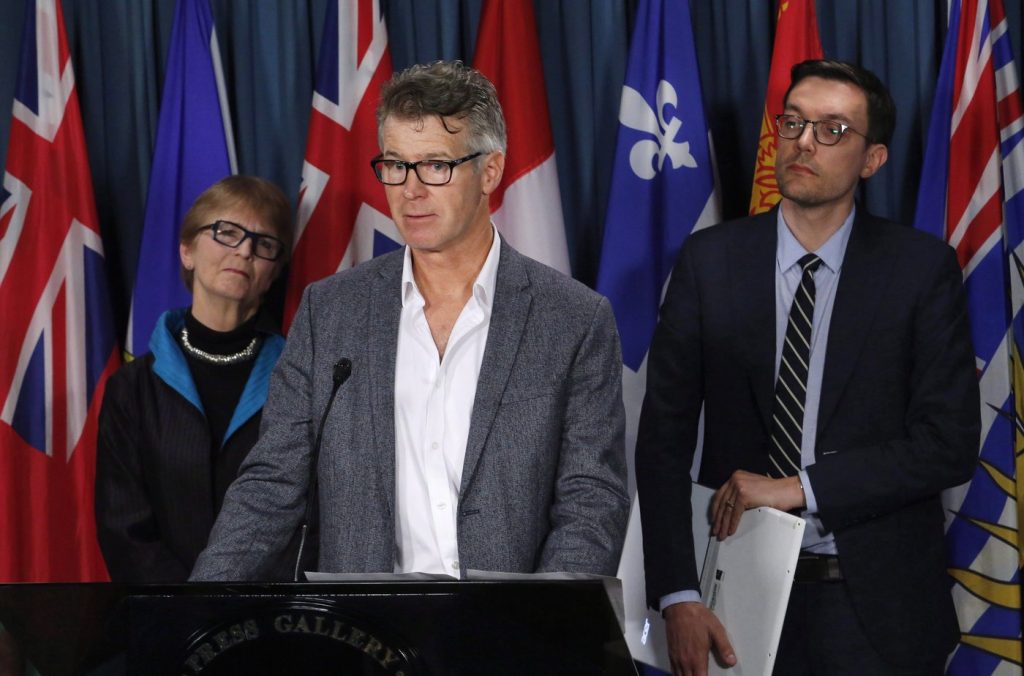OTTAWA — Price Carter, a 68-year-old man diagnosed with stage 4 pancreatic cancer, plans to die this summer on his own terms, surrounded by family. Residential in Kelowna, B.C., he has accepted that his condition is terminal, knowing that his care is strictly palliative. "This is palliative care, there is no cure for this. So that made it easy," he stated during an interview.
Price Carter, who is the son of Kay Carter—whose landmark Supreme Court case paved the way for medical assistance in dying (MAID) in Canada—fully intends to exercise his rights. He has completed an initial assessment for the procedure and anticipates that a second evaluation will confirm his eligibility soon. Speaking calmly about his impending decision, he expressed a sense of peace. "I’m at peace with this, I truly am, and I would have been years ago," he shared.
Nearly a year has passed since Price first experienced symptoms of his illness; until recently, he maintained an active lifestyle, engaging in swimming, rowing, and even golfing with his wife, Danielle. However, as his energy declines, he has outlined a clear vision for how he wishes his final days to unfold.
Over 15 years ago, Price accompanied his mother, Kay, along with his sisters and brother-in-law, to Switzerland for her medically assisted death. At 89, Kay lived with spinal stenosis and became the tenth Canadian to utilize such services. This was before assisted death was legalized in Canada. She had to keep her plans secret to avoid potential legal repercussions for herself or her family. Before passing away in a Dignitas facility, she humorously chased down her final medication with Swiss chocolate.
"When she died, she just gently folded back," Price recounted, expressing a mixture of emotion and fondness as he reminisced about the poignant moment, stating, "If I was writing the movie, I wouldn’t change that." Today, he wants his own death to be similarly surrounded by love and understanding, hoping his children—Lane, Grayson, and Jenna—can experience this peaceful farewell.
Following Kay's death in January 2010, the Carter family faced a lengthy legal battle. Lee Carter, Price's sister, was a key figure in taking the case for assisted dying to the Supreme Court, resulting in a unanimous 2015 decision that invalidated the laws against aiding in someone ending their life. In 2016, legislation was passed to regulate medical assistance in dying, allowing applications for those whose deaths were "reasonably foreseeable."
In 2019, a ruling from the Quebec Superior Court deemed it unconstitutional to restrict MAID to those with predictable death. Consequently, the Liberal government updated the law in 2021, leading to further discussions about expanding eligibility to individuals suffering solely from mental disorders; this change is delayed until March 2027 due to concerns raised by various provinces and mental health professionals.
Amid this ongoing evolution, Price Carter advocates for advance requests, allowing individuals with degenerative conditions like Alzheimer’s or dementia to make decisions regarding their end-of-life care while they are still able. He highlighted the anxiety and fear faced by those who may not retain the capacity to make such choices later. “It’s a simple thing to do. We’re excluding a huge number of Canadians from a MAID option because they may have dementia,” he asserted.
Helen Long, the president of Dying With Dignity Canada, reiterated the widespread support for advance requests evidenced by numerous federal consultations. Meanwhile, Marjorie Michel, the recently appointed health minister, acknowledged the personal nature of these decisions and highlighted the balancing act required to address diverse provincial sentiments. Although Health Canada is preparing a report on public opinions regarding advance requests, Price presses for broader discussions about death. "The more conversations we can spawn around kitchen tables, the better," he advised. "We’re all going to die. It’s part of living, yet we ignore this to our peril."










